When Justice Fails
the Youth
Netflix Series ‘Juvenile Justice’ Asks if Going Easy on
Youth Crimes Simply Begets More Crime
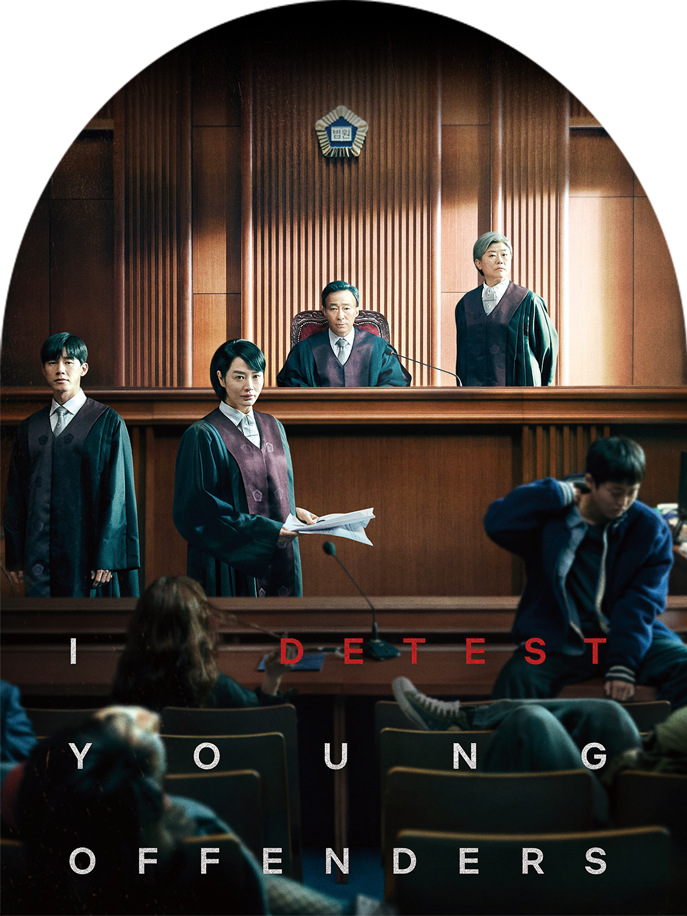
WRITTEN BY
Ahn Soong-beum,
film critic, professor at Kyung Hee University and director of the K-Cuture·Story Contents Research Institute
Photos courtesy of
Netflix
“Juvenile Justice” is a Netflix original Korean drama that was released on Feb. 25, 2022. The courtroom drama critically examines the Juvenile Act and the juveniles in the criminal justice system. Real events that have recently occurred in Korea were used as topics for the episodes of the drama. The drama explores the possibility of a legal system that reforms and rehabilitates juvenile offenders.
“Juvenile Justice” focuses on juvenile offenders in the criminal justice system and makes viewers reflect on the attitudes and positions of those who are in charge of upholding the law. The main character Judge Shim Eun-seok’s narrative plays an incredibly important role in the drama. Shim is at the forefront of those who respond to violent and illegal acts committed by juvenile offenders and is forced to make the better choice in the face of state-approved lawful coercion.
Walter Benjamin defined “the condemnation of violence as the task of describing the relations of violence to law and justice.” Shim’s approach appears to follow this definition and aptly represents the title of the drama. However, it is not an exaggeration to say that her behavior shows a clear condemnation of violence. Her investigations and trials express the way she works to uphold justice in accordance with the legal context in order to accurately condemn individual acts of violence.
Those Who Should be
Protected and Punished
Shim’s condemnation of violence faces a crisis as her competence as a judge is stagnated by the limits of the Juvenile Act. Shim is a person who has rejected a life that only exists as a channel through which legal coercion is exercised. Shim intervenes in the investigation process both directly and indirectly throughout the entire judicial domain. Shortly after being transferred to Yeonhwa District Court, Shim tries to determine who is really behind each crime and looks beyond the superficial lives of the juvenile offenders. By doing so, she is gazing at a system of inherent violence. Shim also seeks to find autonomous ways to achieve justice by quarreling with the binding force of codified law.
More specific confirmation is needed to determine why Shim’s choices and practices towards condemning violence are faced with limitations. Juvenile Justice reflects the belief that the current Juvenile Act allows an excessive broadness of movement for vicious juvenile offenders. Throughout the drama, Shim expresses the way she feels about juvenile offenders by repeatedly stating, “I despise the likes of you.” This is her way of saying that she wants to give the juvenile offenders the appropriate punishment for their crimes even if it exceeds the limits of the Juvenile Act.
Shim meets juveniles who have committed serious crimes and have lost their awareness of the severity of their actions due to the fact that they have received light punishment or, in some cases, completely avoided any form of punishment at all. The focus of the Korea’s Juvenile Act is to protect those who are still in school and provide them with opportunities for reformation and rehabilitation. “Juvenile Justice” raises the following crucial questions based on crimes committed by dangerous juveniles.
Is the original purpose of the Juvenile Act being achieved in a way that gives juvenile offenders the opportunity to rehabilitate without receiving strict punishment for their crimes?
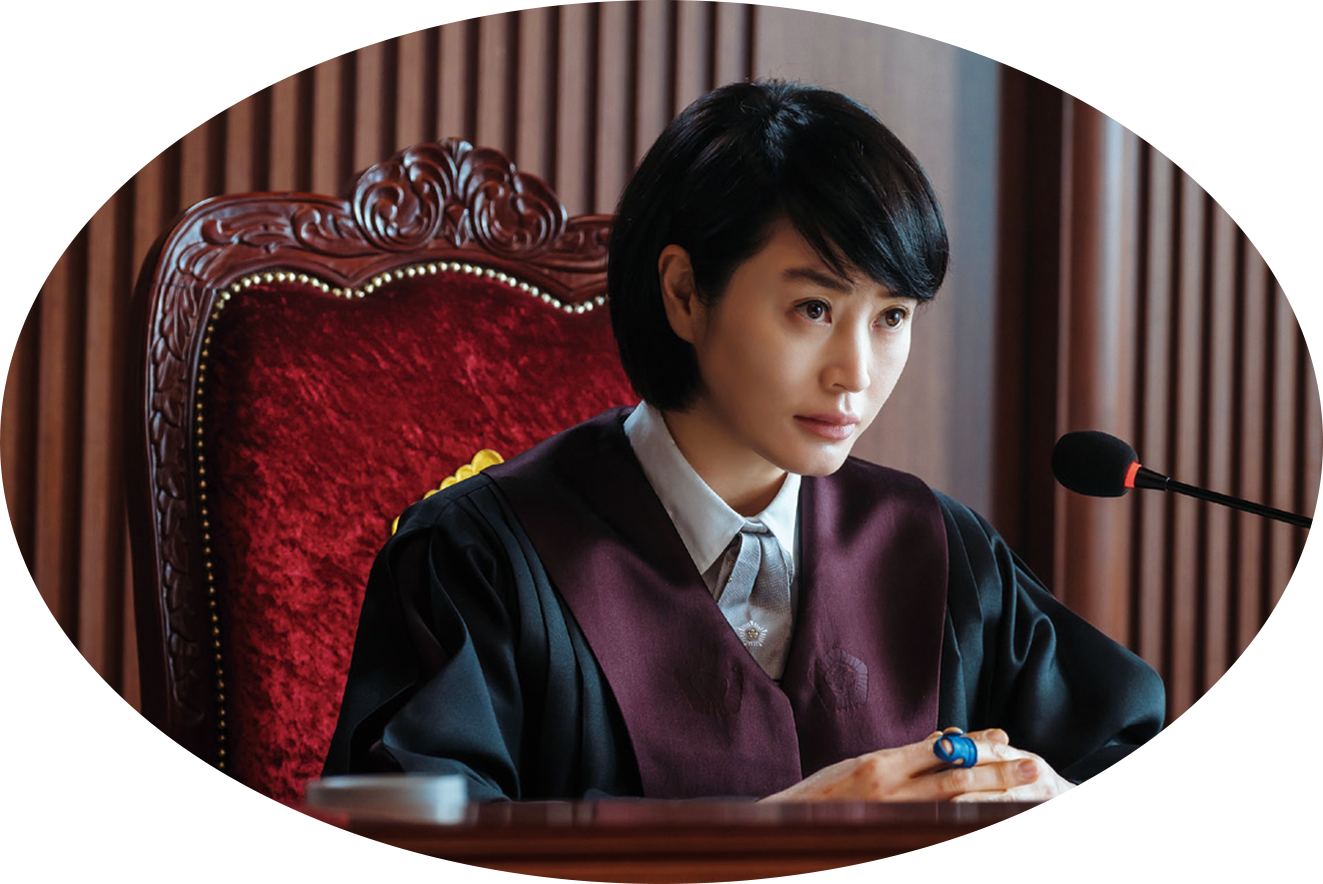
Still shots of the Netflix series ‘Juvenile Justice,’ which deals with the issue of youth offenders.
What is the Court for
Juvenile Offenders?
The judges in “Juvenile Justice” are elites who uphold the laws of society. They are the epitome of the older generation that governs future generations. They try to maintain and strengthen the ideology of Korean society through a cold application of the stipulated law. However, the judges in “Juvenile Justice” do not take a homogeneous position when it comes to the judgment of juvenile crimes and the application of the law.
There are three judges who oppose Shim’s attitude towards juvenile offenders: Cha Tae-ju, who exhibits compassion and benevolence towards juvenile offenders, Kang Won-joong, who values political interests and practicality, and Na Geun-hee, who utilizes the application of mechanical laws through the exclusion of emotions. Shim faces the contradictory ideology of an established society embedded in the loose repression (legal punishment) of the state on juvenile offenders. She tries to find the truth that has escaped the law in the process of interpreting and determining the level of oppression as a form of legal coercion.
If viewers can set aside their thoughts as to whether her actions would be appropriate in reality, Shim can be seen as the type of person who seeks to do the following: improve the distorted environment that surrounds juvenile offenders, enact reasonable procedures to help victims recover, protect victims of violence, and pursue the necessity of strict punishment as a way to deter crime. This is her attempt to return the possibility of a future for the younger generations that have lost their positive outlook on life. Shim constantly questions herself about the recursive movement of violence that continues outside the hands of the law.
In the end, the court in “Juvenile Justice” presents the possibility that the state can serve as the enacter of discipline when parents have failed to do so. However, from Shim’s point of view, the contagious and cyclical nature of violence within an imprudent judicial system is something that cannot be broken. The return of juvenile offenders to court after committing more serious crimes shows that the recursive nature of violence is to spread and intensify.
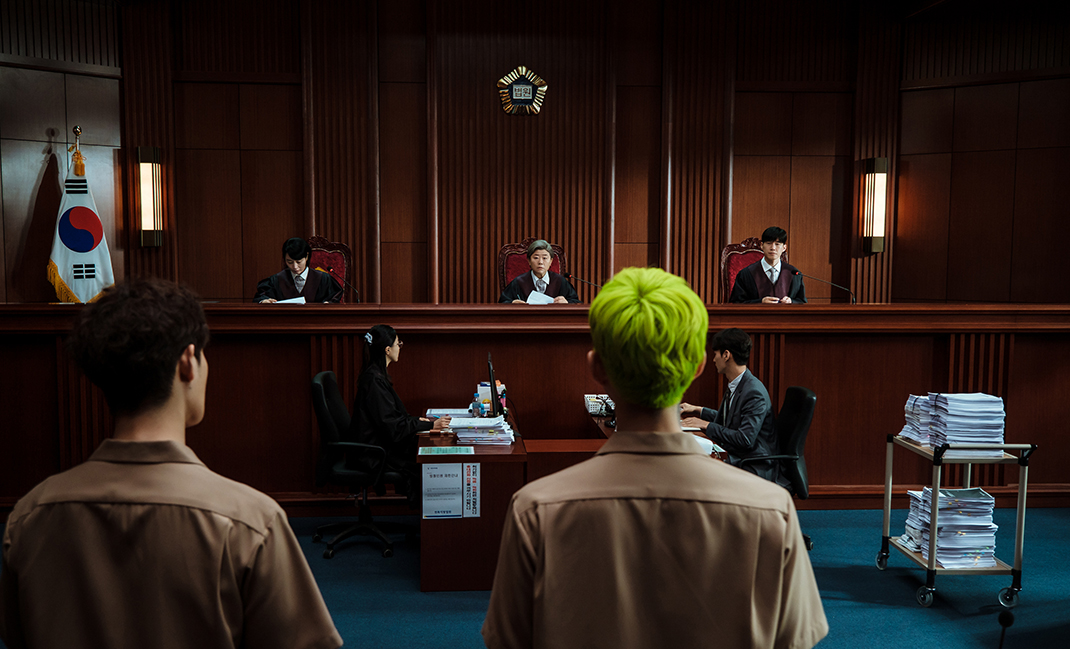
Still shots of the Netflix series ‘Juvenile Justice,’ which deals with the issue of youth offenders.
Imprudent Judicial System Matters
The epic culmination of “Juvenile Justice” is revealed in Episode 9. Clever viewers have most likely figured it out by Episode 9, but it is in this episode that we learn that Shim was the mother of a child who was the biggest victim of an imprudent judicial system. Shim suffered from the insurmountable trauma of losing a child and experienced nutritional imbalance and lack of sleep. One can even suggest that becoming a workaholic was one of her defense mechanisms.
In the final part of Juvenile Justice, Shim meets Hwang In-jun and Baek Do-hyeon, the juvenile offenders who killed her son five years ago. The two were under the age of ten when they killed her son by throwing bricks at him because they thought it would be fun. Hwang has been unable to break his chain of crime not because he was abandoned by his divorced parents, but because he was never punished for killing Shim’s son. He never had the opportunity to reflect on what he did. Baek had no choice but to run away from home at a young age due to conflict with his stepmother. However, Baek is portrayed as a more serious criminal whose actions stem from the failure of the court to carry out rehabilitation rather than a despondent personal life.
Shim is ultimately barred from presiding as a judge over the trial, but she acts as a private victim (the mother of a child who was killed) and serves as a responsible agent to stop the recursive movement of violence. It is through this trial that Na Geun-hee is able to see the blind spot of judgment without emotion. It makes her think about the possibility of a more sensible judicial system. The ruling of the trial revitalizes the gaps in the lenient Juvenile Act that have been publicly debated for creating a recursive movement of violence.
The misfortune of future generations caught up in the recursive movement of violence cannot be solved with vague expectations that individuals will change. That’s why this drama questions an imprudent judicial system through juvenile offenders
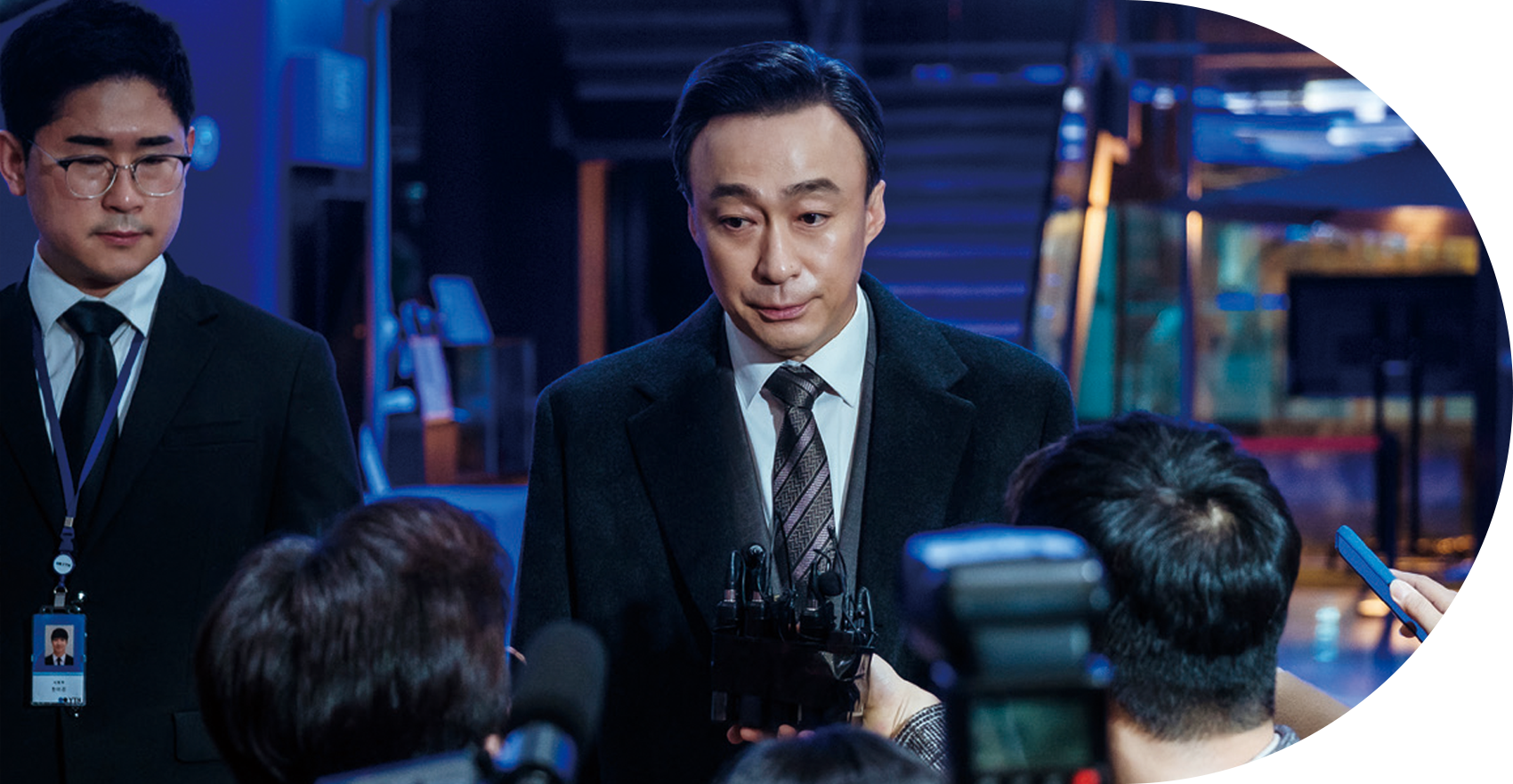
Still shots of the Netflix series ‘Juvenile Justice,’ which deals with the issue of youth offenders.
Other Articles
-

Special Ⅰ Where Creativity Flows
-

Special Ⅱ A Pumping Station with Spirit
-

Trend All About Drainage Basins
-

Hidden View City of Lights
-
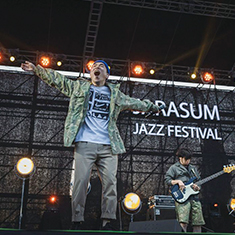
Interview A Bit of Traditional
Musical Futurism -

Art of Detail Fragrant Fashion
-
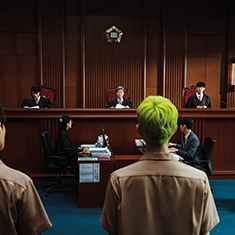
Film & TV When Justice Fails
the Youth -

Collaboration Making the Unfamiliar Familiar
-
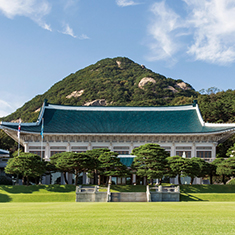
Current Korea Cheong Wa Dae,
Back to The People -
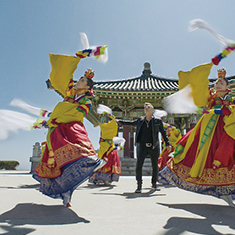
Global Korea Hanbok Appears
in the MV of a Pop Artist
